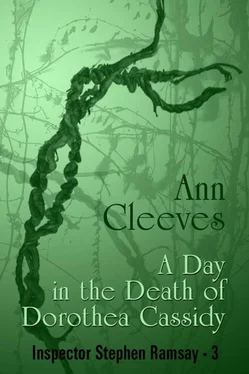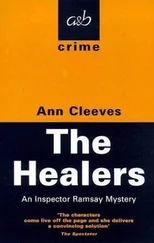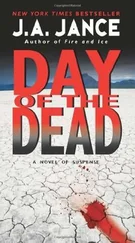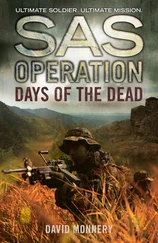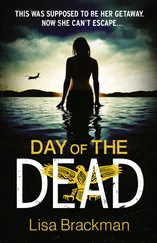Ann Cleeves - A Day in the Death of Dorothea Cassidy
Здесь есть возможность читать онлайн «Ann Cleeves - A Day in the Death of Dorothea Cassidy» весь текст электронной книги совершенно бесплатно (целиком полную версию без сокращений). В некоторых случаях можно слушать аудио, скачать через торрент в формате fb2 и присутствует краткое содержание. Жанр: Детектив, на английском языке. Описание произведения, (предисловие) а так же отзывы посетителей доступны на портале библиотеки ЛибКат.
- Название:A Day in the Death of Dorothea Cassidy
- Автор:
- Жанр:
- Год:неизвестен
- ISBN:нет данных
- Рейтинг книги:5 / 5. Голосов: 1
-
Избранное:Добавить в избранное
- Отзывы:
-
Ваша оценка:
- 100
- 1
- 2
- 3
- 4
- 5
A Day in the Death of Dorothea Cassidy: краткое содержание, описание и аннотация
Предлагаем к чтению аннотацию, описание, краткое содержание или предисловие (зависит от того, что написал сам автор книги «A Day in the Death of Dorothea Cassidy»). Если вы не нашли необходимую информацию о книге — напишите в комментариях, мы постараемся отыскать её.
A Day in the Death of Dorothea Cassidy — читать онлайн бесплатно полную книгу (весь текст) целиком
Ниже представлен текст книги, разбитый по страницам. Система сохранения места последней прочитанной страницы, позволяет с удобством читать онлайн бесплатно книгу «A Day in the Death of Dorothea Cassidy», без необходимости каждый раз заново искать на чём Вы остановились. Поставьте закладку, и сможете в любой момент перейти на страницу, на которой закончили чтение.
Интервал:
Закладка:
‘Aye,’ Cuthbertina said. ‘It was half past five. I looked up at the church clock.’
‘Did you go back later to take the cleaning stuff?’
‘No,’ Cuthbertina said. ‘I thought I’d leave it in the vestry just this once. I got the idea Mrs Cassidy wouldn’t want to be disturbed.’
Triumphantly Annie Ramsay scuttled back to her flat to phone her nephew to tell him the news and receive his admiration.
Chapter Fourteen
When Imogen arrived in Otterbridge she drove straight to the vicarage. Edward Cassidy had the kitchen door open before she could get out of the car and he walked out on to the square patch of gravel at the side of the house, shielding his eyes from the bright sunlight with one hand, to see who it was. She could tell at once that he was disappointed and they stared at each other, not sure what to say. He was so grey and confused that Imogen wondered if he might be physically ill.
‘I was looking for Patrick,’ she said at last. ‘ I wanted to help. I don’t know…’
He shook his head.
‘He’s not here,’ he said. ‘I don’t know where he went.’ Then plaintively, ‘He’s taken my car.’
‘How is he?’
‘Upset. Dreadfully upset. He was very fond of his stepmother.’
Oh yes, Imogen thought bitterly, we all know how fond he was of Dorothea.
He tried to persuade her to come into the house with him, to take some tea, share the burden of waiting for Patrick, but she refused. She knew Edward wanted to talk about Dorothea and she could not stand that. She almost ran back to her car and drove away too quickly, so that the wheels spun on the gravel and the cats that had been sleeping on the back doorstep in the sun ran into the house.
She drove through the town to her parents’ house. She thought Patrick might try to get in touch with her there. The progress through the crowded streets was slow and she swore to herself and hit the horn with her fist when pedestrians would not move out of her way. In the square by the alms-houses some sort of pageant was in progress. It was full of children in medieval dress. Bloody festival, she thought. The whole town goes mad at this time of the year.
Her parents lived in a large semi-detached villa in one of the quiet streets close to the park. She had long since stopped thinking of it as her home, though she had never lived anywhere else, except in a nurses’ home for the first few months of her training. And she’d hated that. All along the street, in the gardens and by the side of the road, trees were in blossom. Much of it was past its best so the pavement and parked cars and the tidy front lawns were covered with the shrivelled pink flowers. Her mother laughed at the neighbours’ attempts to sweep the dead blossom away. ‘ What does it matter?’ she would say. ‘There’ll only be more tomorrow. What tedious lives those people must live if they can think of nothing better to do.’
I expect she considers I lead a tedious life, too, Imogen thought.
She pulled her car on to the pavement, leaving the drive free for her parents’ Volvo and walked down the long, narrow garden to the house. Just inside the door was a pile of post and she stooped to pick it up, absently looking through the envelopes to see if there was anything for her. There was one letter. It was in a cheap white envelope and the address was written in a handwriting she did not recognise. It had been posted locally the evening before. She took it with her to the kitchen and put it on the table while she filled a kettle to make coffee. All the time she was willing the phone to ring, or the doorbell. Patrick would have an explanation for everything, she thought. If only Patrick turned up everything would be all right. She made instant coffee in a mug with a cartoon of Margaret Thatcher on the side and opened the letter.
Dear Imogen, it said. I’m sorry you were so upset today. I think we should meet when I’ve more time. We need to talk. Perhaps we could have a meal together. I’m sure you’ve no reason to worry. I’ll be in touch soon.
It was written in a bold and confident hand and it was signed Dorothea. Imogen could imagine her writing it, dashing it off in a moment, perhaps while she was sitting in her car outside some client’s house. There was nothing new in the letter. It was a gesture, a form of showing off. Look at me, it said, I’m incredibly busy but I can still find time to show my stepson’s neurotic girlfriend that I care about her. It was as if she had seen a ghost. She tore the letter into pieces, then set fire to the paper in an ashtray. She rinsed the mug and the ashtray under the tap and went up the stairs to her room.
She had first suspected that Patrick was in love with Dorothea Cassidy on Easter Sunday. She remembered it vividly. She had been invited to the vicarage for lunch, then she and Patrick had spent the afternoon together, walking along the River Otter. There was a quiet, overgrown place where they knew they would not be disturbed. They lay under the trees and threw stones into the water. She had her head on his stomach and he stroked the hair away from her face.
‘We should elope,’ he had said, ‘ and live here for ever.’
She had moved away from him, so she was face down, watching the dragonflies on the river. She did not look at him because she was nervous about what he might say. ‘ Why don’t you leave the vicarage?’ she asked. ‘Perhaps we could get a flat together.’
‘Perhaps we could!’ he said, apparently enthusiastic, so she rolled back on to her side and took his hand, relieved. But when she went on to make real plans, to discuss where they might live, when he might move, he said it was not something to hurry.
‘There’s plenty of time,’ he said, expansively. ‘We’re all right as we are.’
So she realised that something was holding him at the vicarage. She thought at first it might be his affection for his father. They had been alone for such a long time that there was a special bond. It was only later on that Easter Sunday as they were walking back in the dusk through the trees with the sound of church bells in the distance, that Patrick made some casual reference to his stepmother. The trivial remark was made with such reverence that she saw, quite suddenly, that the real attraction was Dorothea.
Since then she had considered Dorothea a rival. Even when she was most depressed she had never dreamt that there was anything physical between them, but in comparison to Dorothea she felt excluded and inadequate. The jealousy crept up on her without her realising what was happening. At the start it was a minor irritant, almost amusing. Didn’t Patrick see what a fool he was making of himself? she thought. He was surely too old for a teenage crush. It was all the fault of that crazy boys’ school his father had sent him to. But it had steadily become more debilitating, and soon the secret and desperate jealousy was as much a part of her relationship with Patrick as her infatuation for him.
It was a private obsession. She started to count the number of times he mentioned Dorothea in each conversation. She noticed that when Dorothea was alone in the vicarage he made excuses to go home early to see her. Imogen knew that the obsession was destructive. She knew her hostility to Dorothea only increased the likelihood of Patrick leaving her, yet she was unable to stop herself. ‘Why does Dorothea have to run around doing all that social work?’ she would ask, sneering. ‘Hasn’t she got enough to do in the church? Shouldn’t she dress more like a vicar’s wife?’ Patrick seemed so wrapped up in admiration for his stepmother that he did not notice the criticism and was only too glad of the opportunity to talk about her. Soon Imogen knew even the most intimate details about her. Dorothea could never have children, he said melodramatically. It was one of the tragedies of her life. That was why she was so committed to social work. She loved all the children she worked with as if they were her own.
Читать дальшеИнтервал:
Закладка:
Похожие книги на «A Day in the Death of Dorothea Cassidy»
Представляем Вашему вниманию похожие книги на «A Day in the Death of Dorothea Cassidy» списком для выбора. Мы отобрали схожую по названию и смыслу литературу в надежде предоставить читателям больше вариантов отыскать новые, интересные, ещё непрочитанные произведения.
Обсуждение, отзывы о книге «A Day in the Death of Dorothea Cassidy» и просто собственные мнения читателей. Оставьте ваши комментарии, напишите, что Вы думаете о произведении, его смысле или главных героях. Укажите что конкретно понравилось, а что нет, и почему Вы так считаете.
